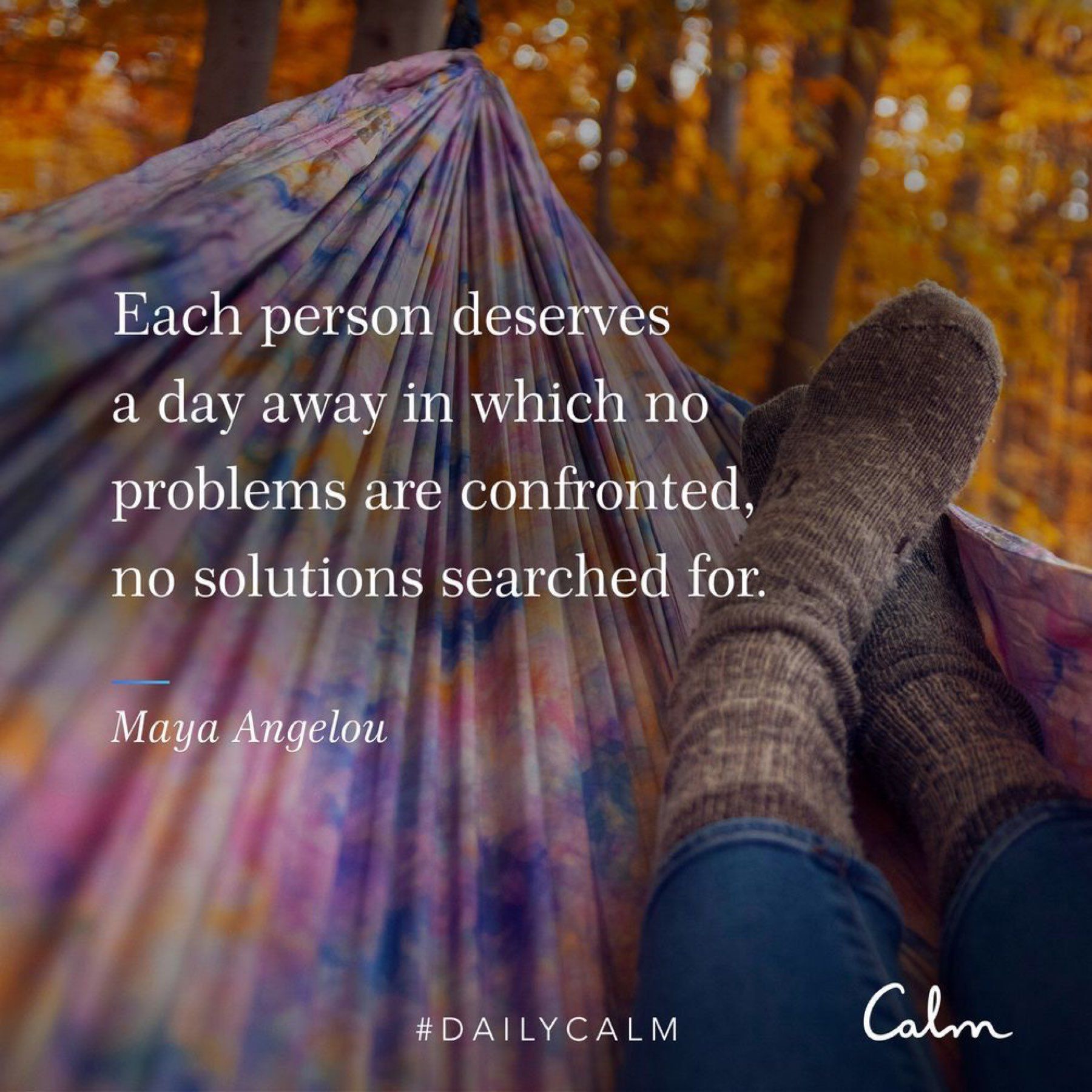🧘🏻♂️ This idea leaves me conflicted. It can be soothing to reduce the possibilities. My problem, however, is usually in recognizing alternatives to the first possibility identified. So this practice is vital for me. From my Daily Calm
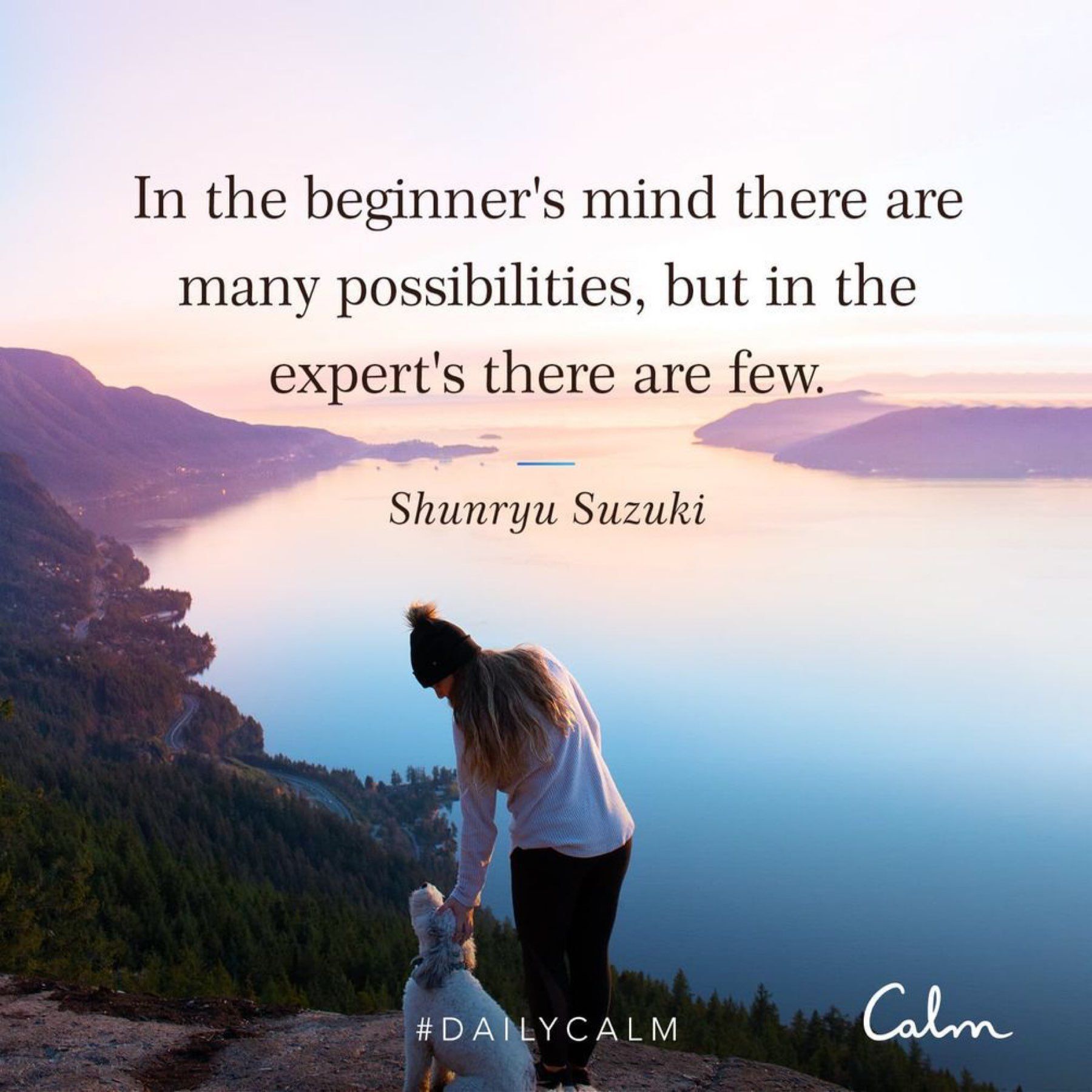
🧘🏻♂️ This idea leaves me conflicted. It can be soothing to reduce the possibilities. My problem, however, is usually in recognizing alternatives to the first possibility identified. So this practice is vital for me. From my Daily Calm

🧘🏻♂️ This feels paradoxically cyclical. If you don’t know how to live, how can you trust yourself? It has to start somewhere. Here’s hoping we can all make the leap of faith. From my Daily Calm

📖 Journey to the Center of the Earth
By Jules Verne
🧘🏻♂️ This is a real challenge for me. But as I stop trying to run from the thoughts and just sit with them for a moment, they lose some of their sharp edges. From my Daily Calm
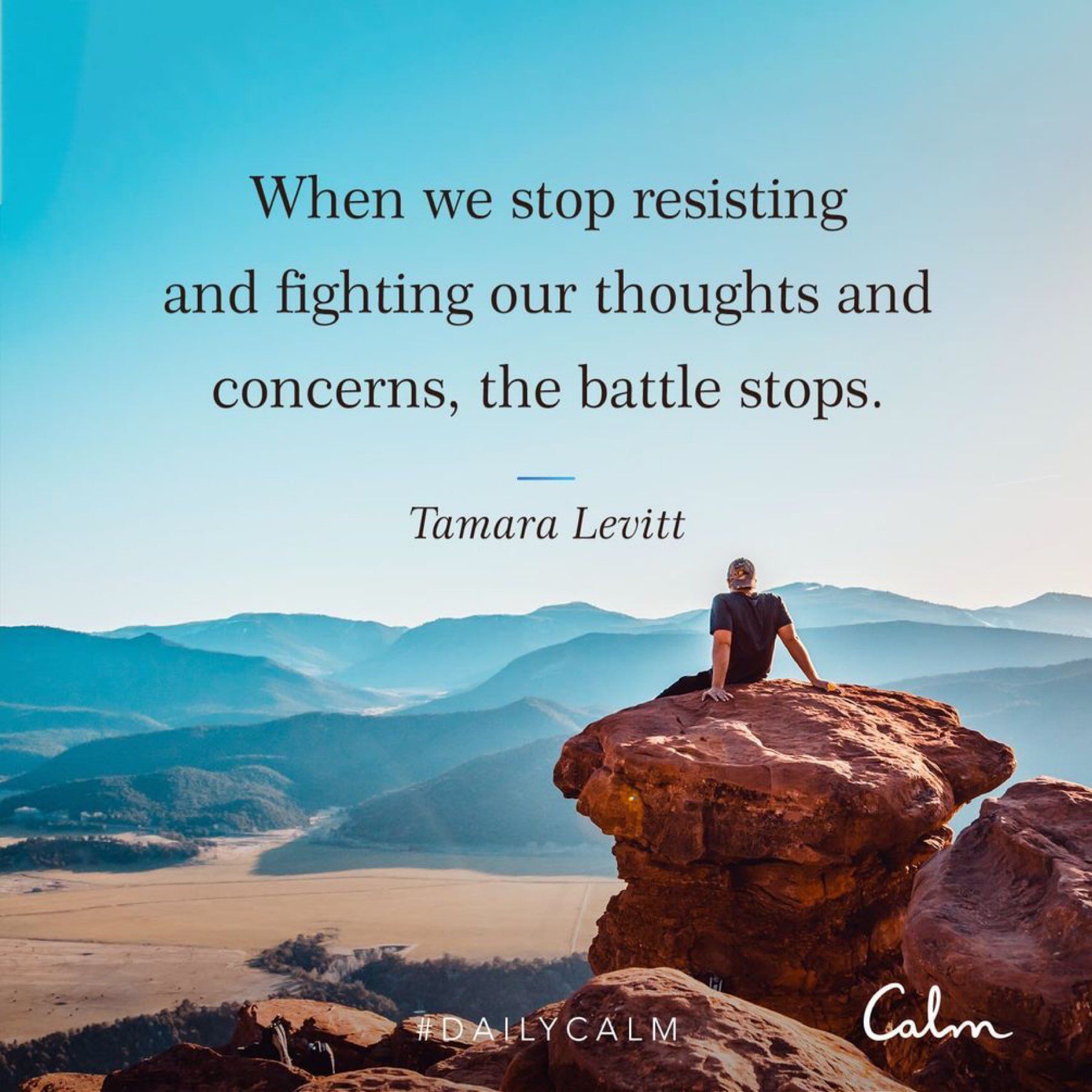
We often attach so many expectations and hopes to recommendations we give others that we deny them the opportunity to simply experience the moment.
I recently returned from a vacation with my brother in Mexico. He was able to live in San Carlos for eight months last year, as his company has an office down there. I tagged along for a business trip of his, and we had a great time relaxing.
While we were there, I noticed an interesting phenomenon in myself. There were a few evenings when we watched a movie together, and they were typically ones that I recommended that he had not yet seen. I found that I had an increased level of anxiety as we watched those movies, and I was worried about whether he would like my recommendations. I wanted them to be just as great for him as they were for me.
Because he had lived there for a while, many of the food options we chose were recommendations from him. He wanted me to try some of his favorite spots. I projected the same kind of anxiety on him for these recommendations. I felt pressure to like the food so that he would not feel bad. I’m sure that he did feel some anxiety, but not to the level that I created in myself.
I realized how common this is. Almost anytime we give someone a recommendation, we get emotionally invested in it. We want so badly for the other person to have the same wonderful experience that we did. Ironically, this heightened desire often makes that enjoyment impossible.
The problem is that introducing additional expectations can be toxic. We take a situation which may be just fine, but by building it up to be amazing it becomes a disappointment. Even in instances when it is not a letdown, the additional stress we have introduced invariably detracts from the enjoyment everyone involved could have had.
We have to remember that there is no success or failure attached to recommendations. When we give a recommendation, we are offering a possibility, not a guarantee. In the best situations, we merely provide the idea for someone to do something. They may choose to do it or not. They may enjoy it or not. They may recommend it further or not.
If we can separate the expectations from the situation and approach the situation with curiosity, we provide a safe place for true enjoyment. The key is for us to allow each other, and even ourselves, to merely experience the moment with no judgment attached.
🧘🏻♂️ This is at the core of the kind of father I am striving to become. It’s a long journey of self discovery to figure out what not saying no to myself looks like. But it’s worth it to become the dad I want to be. From my Daily Calm
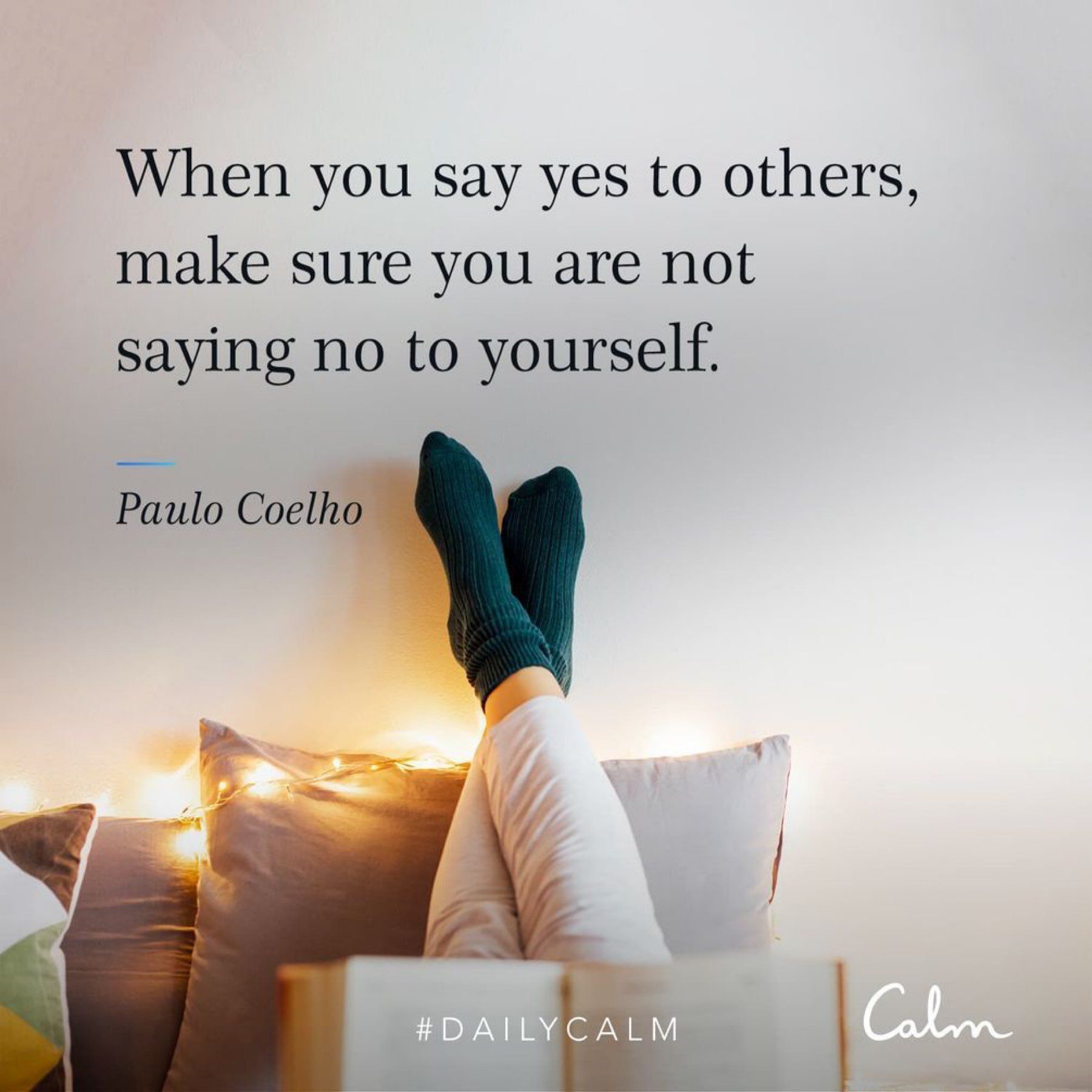
Thoughts on the spectrum of kindness and compassion we extend in talking to others, talking about others, talking to ourselves, and talking about ourselves.
Links
🧘🏻♂️ This does not feel easy or natural to do. But it is something that I want to make a normal part of my personal and family culture. Through self-care, we can better care for others. From my Daily Calm

🧘🏻♂️ We often lament the lightning-quick passage of time, but more rarely use it to our advantage. Small, consistent efforts add up to significant achievements. From my Daily Calm
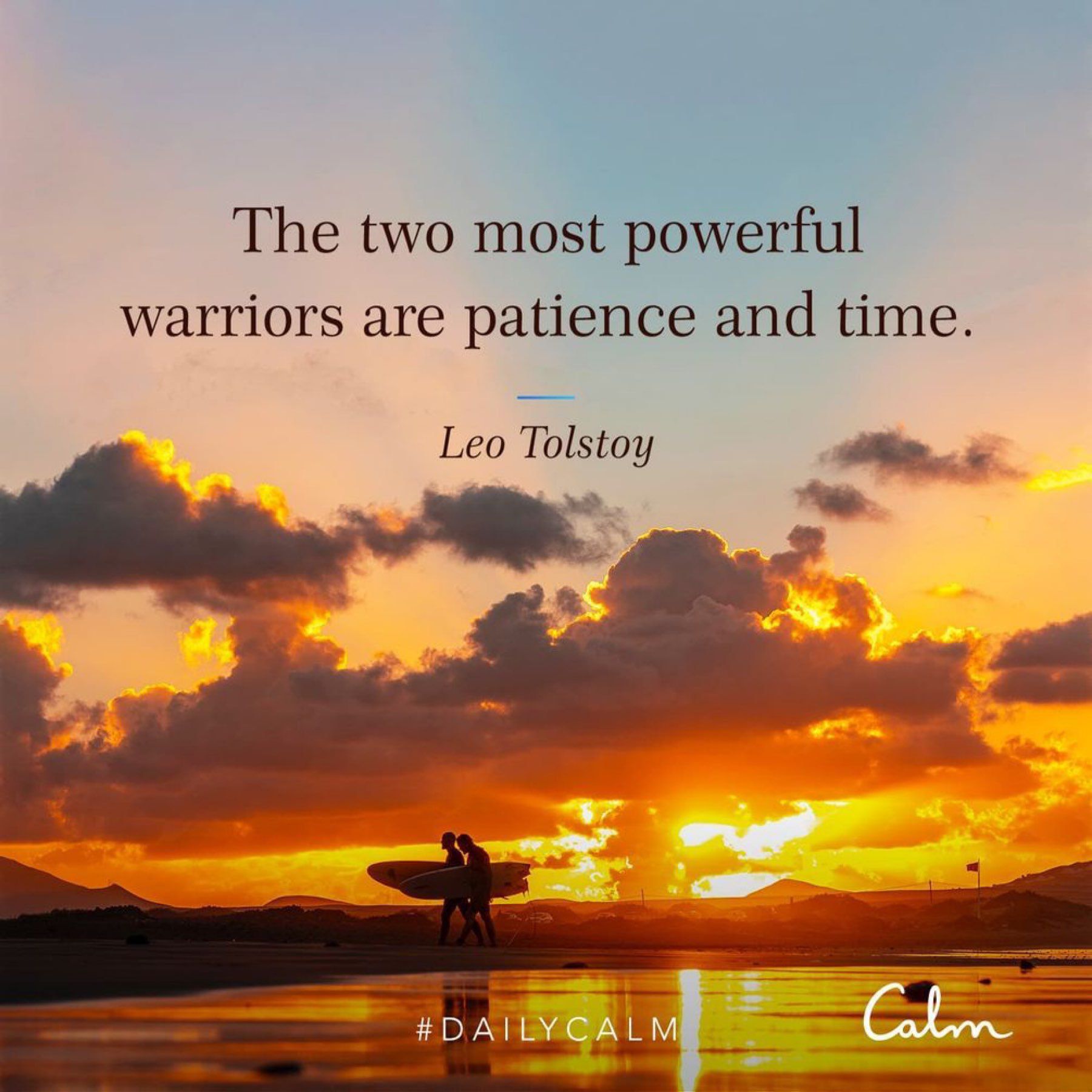
🧘🏻♂️ I’ve put on a few pounds as I’ve worked through different medications for my OCD. This is a great reminder to not let myself get too focused on that. From my Daily Calm
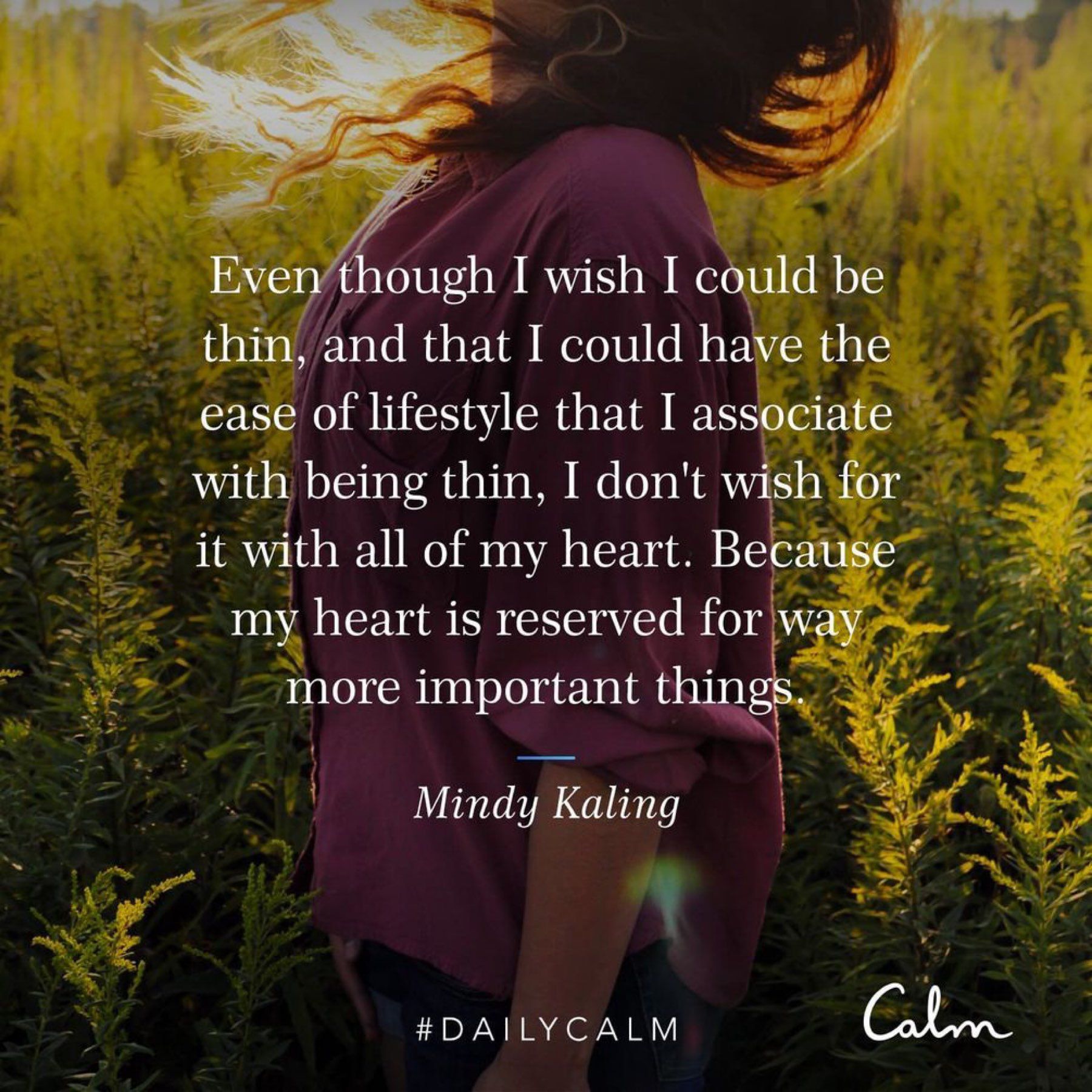
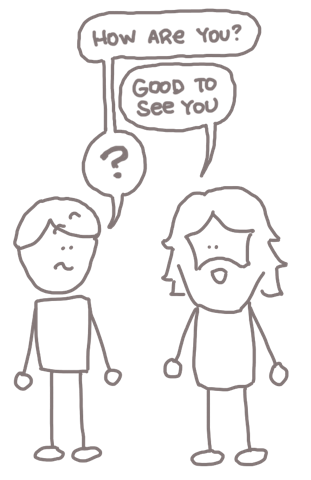
There are enough times when “How are you?” comes from someone for whom “Good to see you” is not the correct response to merit further consideration.
A couple weeks ago, I shared my thoughts on the common greeting, How are you? In that article, I expressed my displeasure with this question, particularly as someone who struggles with mental health. My reply of choice was to sidestep the question and neither answer truthfully nor lie, and simply state, “Good to see you.”
Since that time, I have noticed a number of occasions when even this is not appropriate. One of the most common of these situations for me has occurred while shopping. Since I have been on a healing retreat the past couple weeks, I have not interacted with friends and colleagues as often. I have been surprised at how often I am still confronted with this personal question from complete strangers.
When I do not know the person at all, responding with, “Good to see you” is not appropriate. Partly it sounds weird, but mostly it simply is not true. Most of the time, I would be much happier if I could shop efficiently and effectively without speaking with anyone.

So I have taken a new approach in these situations. When someone greets me, “How are you?” I simply respond, “Thank you.” Often it’s followed with a question that I actually have, such as the location of a specific item.
I have found some interesting reactions to my “thank you” response. Most of the time, people just continue on without missing a beat. We have merely exchanged polite niceties and can now continue with our information transaction. Occasionally, an observant person will be a bit taken aback that I have not answered the question. And my favorite has been a response back of, “Fine, thanks.” There is an assumption that not only did I answer the question, but I asked a similar one in return.
This new approach of mine has done a couple things for me.
First, it has reminded me of how little people actually listen. This is hard for me to stomach, and is part of the reason I had to come up with an alternative response in the first place. What I say impacts me much more than most people with whom I interact.
Second, this has resolved a further point of distress. It has enabled me to move more gracefully through social interactions that might otherwise be awkward or painful.
This may or may not be the right approach for you to take. I encourage you to explore your responses to common situations and evaluate whether any change is needed. Most importantly, I urge you to consider no longer throwing away personal questions as greetings. Save them for the people who matter the most to you, and then care enough to get a real answer.
🧘🏻♂️ It is surprising how difficult it can be to love yourself and treat yourself kindly. Try to say words to yourself that you would say to a beloved friend. From my Daily Calm
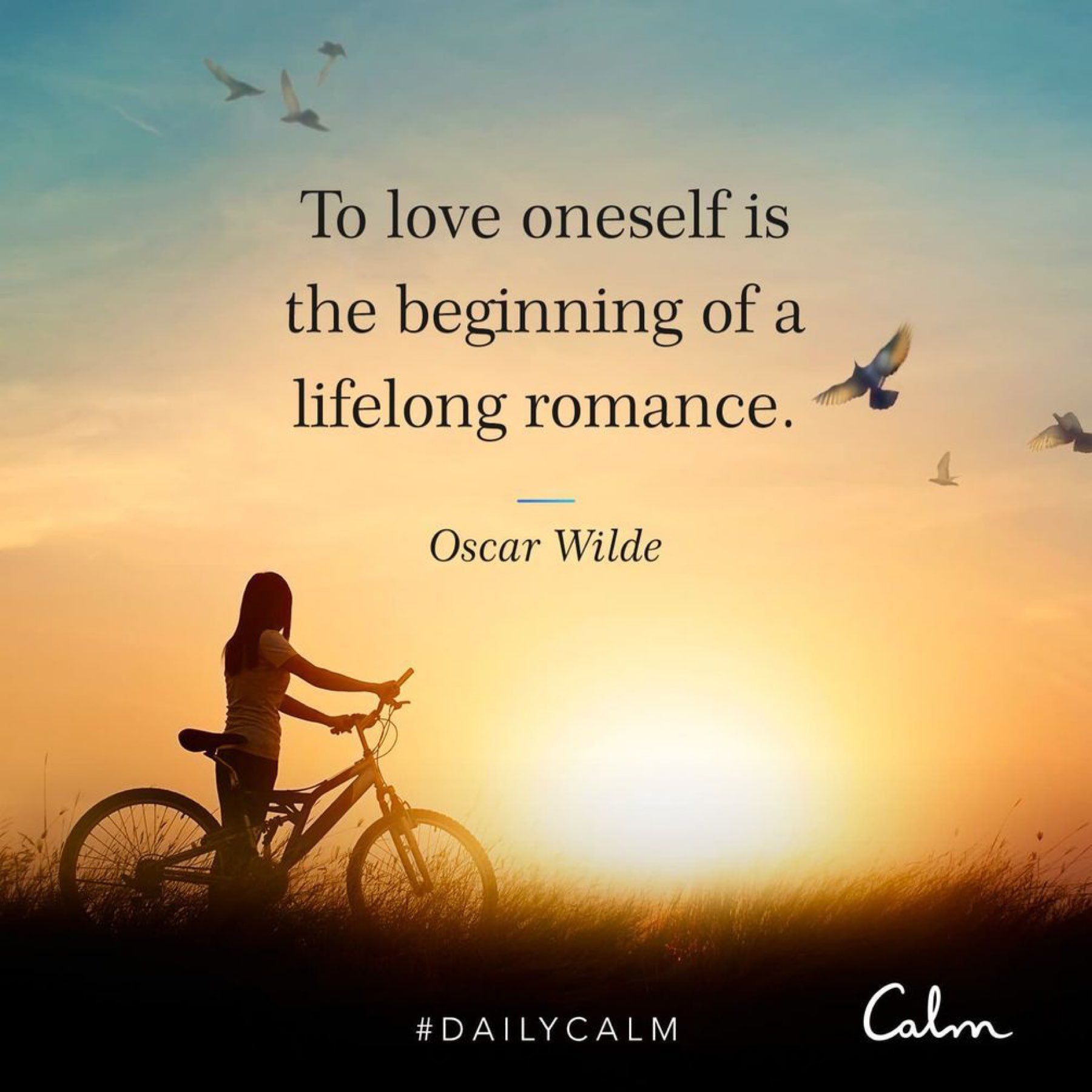
🧘🏻♂️ This is true even (or especially!) when the invitations come from my own mind. I still have a choice. I am in control. From my Daily Calm
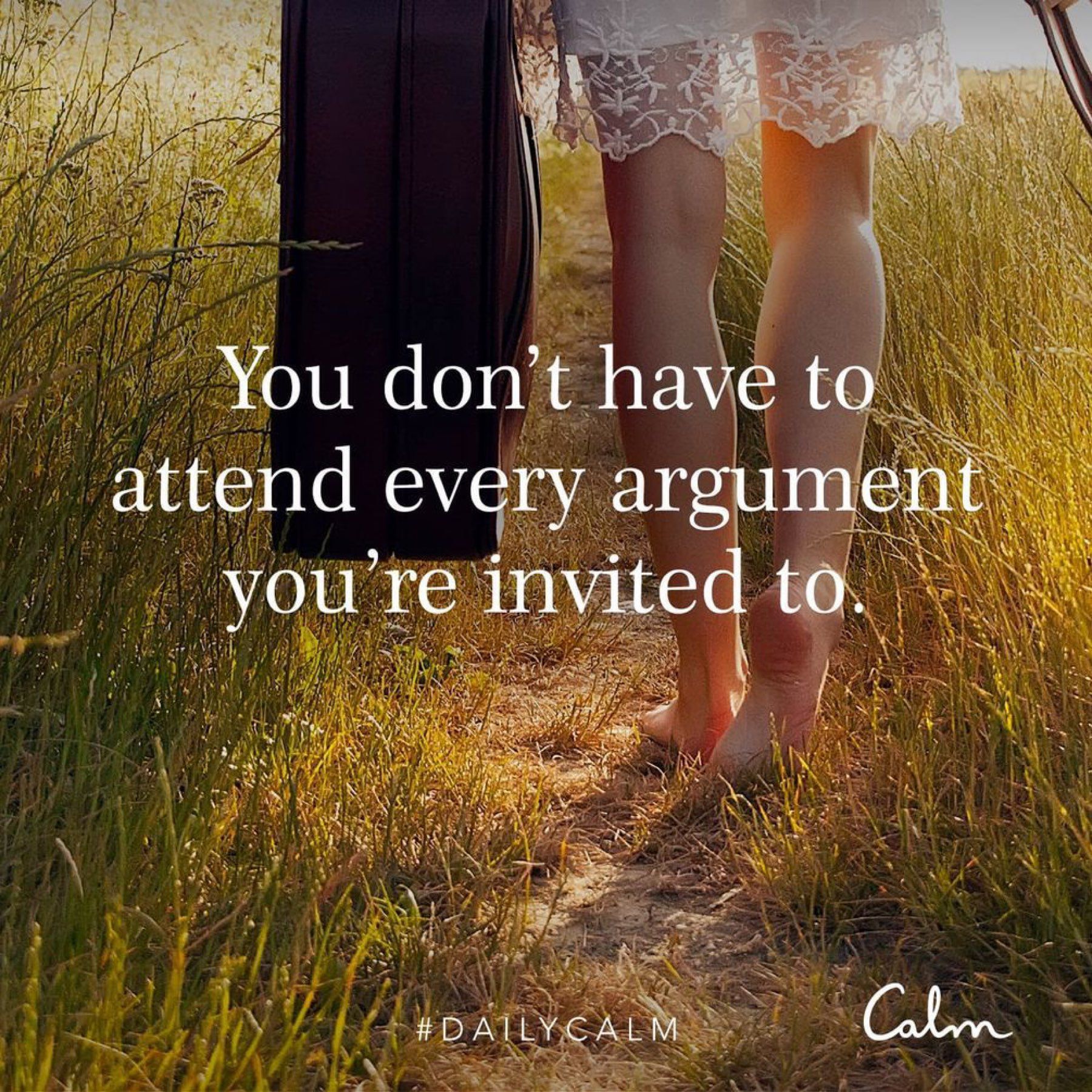
Back home from my healing retreat. It’s been fun to see how excited my kids are for me to be home. So much love. 🥰
🧘🏻♂️This is appropriate as I was traveling this morning and didn’t get to do my usual morning meditation until afternoon. It is still possible to seize the opportunities of today, even if those are just to relax. From my Daily Calm

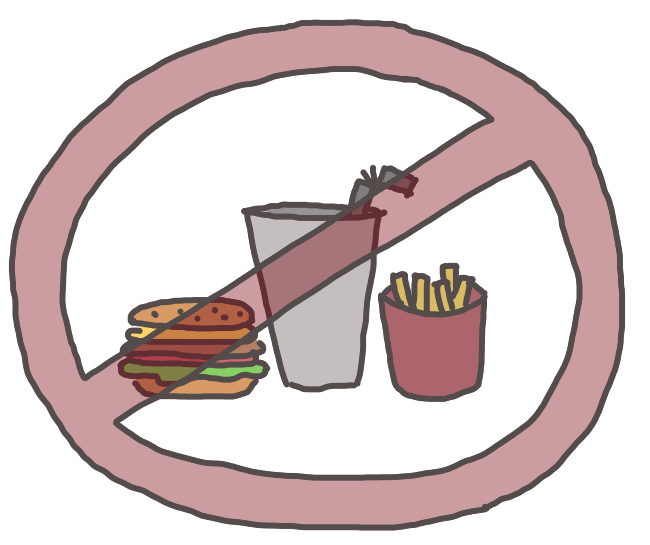
Instead of ordering the best value, order the size you actually want.
I imagine that my experience is similar to yours. When I go to order food, I am mentally doing a quick calculation between the different sizes to identify the best value. If 20oz is only 50¢ more than 16oz, it is nearly impossible to order the smaller size. Even when I actually want the smaller size.
This leads to many different problems. Instead of being satisfied with my order, I have to choose between eating to discomfort, or grappling with the feeling of having wasted food. Often times, I will eat more than I wanted so that I am taking full advantage of the great value that I got.

I remember a particularly poignant example of this when eating at Smashburger one day. They were having a promotion on the Triple Double which made it even cheaper than the regular burger. I did not actually want that much meat, but I felt compelled to order the bigger burger for cheaper. My friend came behind me and ordered the same burger, but asked for only a single hamburger patty. I was struck by the brilliancy of his solution. That had never even crossed my mind.
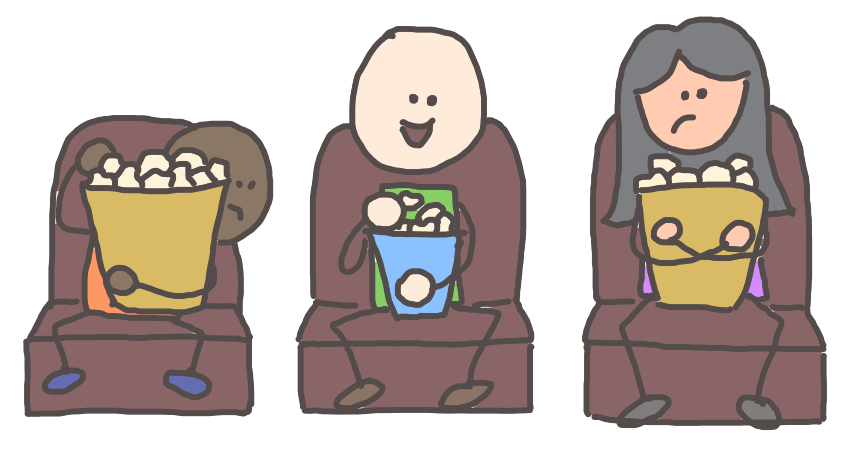
As I have been on my healing retreat, I have seen a few movies in the theater. I used this as an opportunity to practice the new approach I wanted to take. It is a real challenge for me to pay $4 for a smaller bucket of popcorn, when the large is $5 and comes with a free refill. The thing is, I can never eat that much popcorn without getting sick. So I have forced myself to order the smaller size and stop worrying about the value I am missing out on. And I have enjoyed my movies much more with just the right amount of popcorn.
There are many situations in life when we make choices based on the perceived value of the options. Instead, we need to become more comfortable with ourselves, and more aware of our desires. And then be willing to act based on what we actually want, not what we think we should want. This is a much happier, and more comfortable, way to live.
When gratitude is trivialized too often and too thoughtlessly, we run the risk of discouraging it to the point where it stops altogether.
As I have been in Mexico, I have noticed an interesting linguistic phenomenon. By far, the most common response I’ve noticed to someone expressing gratitude is, „De nada.” I’m sure there are part of the U.S. where “No problem” or “It’s nothing” are the most common responses to “Thank you” as well, so this is nothing of a cultural indictment. But it got me thinking.
I wrote recently about trivializing apologies. The fact that we do that feels more explicable to me than our tendency to do the same with gratitude. With an apology, we at least might be seeking to extend mercy or uplift the other person.
However, when we trivialize gratitude, I think we do it thoughtlessly, even without realizing it. Just as with personal questions masquerading as greetings, we can fall into the trap of using societal niceties without considering what they actually mean, or the effect they might have.
Perhaps this will be easier to understand when we stop to think more about what is actually happening when someone expresses gratitude. Of course, there are thoughtless “Thank you”s bandied about, and they can muddy the waters. But typically when someone expresses appreciation, it represents a moment of vulnerability. They are self-aware enough to notice feelings of respect, admiration, or gratitude, and they are opening themselves up to expressing those emotions. It is often not easy to share our true emotions, and if sharing is not met with gentleness, it can be truly painful.
When we respond to appreciation with phrases such as, “Oh, it was nothing,” or, “No problem at all,” we are probably trying to be modest. We don’t want to appear conceited, and somehow believe that if we validate what the other person is saying, we will be perceived as arrogant enough to assume that what we did was important and merited thanks. When we fall into this mindset, we are being selfish and self-centered.
When someone thanks you, you are not the point. Not even your actions are the point. The point is the other person, and their willingness to express themselves. That ought to be welcomed and celebrated. We would be much better off if everyone was more wiling to share what truly matters to them.
So the next time someone appreciates you, stay in the moment for a minute. Resist the urge to think of yourself and how you might appear. Focus on that person and the feelings they are sharing. Honor and validate that sharing, and encourage it to continue.
🧘🏻♂️ This very thing has been the biggest effort of my healing retreat. I have had to confront so much about myself, and be willing to examine it and decide if it’s worth keeping or if I can let it go. From my Daily Calm

In our efforts to reassure someone that their transgression was not overly severe, we can inadvertently trivialize the effort it took for them to apologize to us.
It is not uncommon for our natural instinct to preserve harmony and avoid discomfort to emerge when someone tries to apologize. We become uncomfortable that the other person is regretting what they have done, and seek to assure them that we are not upset. As I wrote about a few weeks ago in Replacing sorry, we sometimes do this even when the other person is not apologizing. They say the words, “I’m sorry” and we immediately feel compelled to tell them that it’s fine.
This scenario plays out so frequently that it deserves more thought and introspection. I think that part of our instinct comes from a good and natural desire to not let another person take full blame when they are not completely guilty. In his wonderful book How to Win Friends and Influence People, Dale Carnegie tells a story of using that instinct to his benefit, and suggests that we can similar.
I was in for it. I knew it. So I didn’t wait until the policeman started talking. I beat him to it. I said: “Officer, you’ve caught me red-handed. I’m guilty. I have no alibis, no excuses.“
That policeman, being human, wanted a feeling of importance; so when I began to condemn myself, the only way he could nourish his self-esteem was to take the magnanimous attitude of showing mercy.
Instead of breaking lances with him, I admitted that he was absolutely right and I was absolutely wrong; I admitted it quickly, openly, and with enthusiasm. The affair terminated graciously in my taking his side and his taking my side.
When we are right, let’s try to win people gently and tactfully to our way of thinking, and when we are wrong—and that will be surprisingly often, if we are honest with ourselves—let’s admit our mistakes quickly and with enthusiasm. Not only will that technique produce astonishing results; but, believe it or not, it is a lot more fun, under the circumstances, than trying to defend oneself.
Another reason for our aversion to apologies is that we want to feel merciful. There are selfish and selfless tendencies at work here. We feel a noble desire to uplift the other person. We see them suffering, and want to do our part to relieve that suffering. However, too often, we are more concerned with our feelings than theirs. If someone apologizes to us, that puts us in a position of judgment and we want to feel the satisfaction that comes from extending mercy and we assume the way to achieve this is to say that the apology was unnecessary.
Often, we dismiss the need for an apology because we are not comfortable with sitting in the emotions that it stirs up. We do not feel willing to take ownership for our own mistakes and truly apologize for them, and so we have a hard time hearing someone else do it. Guilt is an uncomfortable companion.
However, this is not always the case. I had an experience this week that made me think about this more deeply. I joined my brother in Mexico for his business trip, and we were able to stay in a condo that his company owns. He was bringing tacos so we could eat lunch together. A few minutes before he was supposed to arrive, I got back from a walk and took a quick shower. Almost as soon as I got in, I heard him come in, and I regretted my decision. When I got out of the shower, I told him, “I want to apologize, and I don’t want you to trivialize it.” He was a little taken aback, and said he was ready to hear it. I told him that I was sorry I had taken a shower and cut it so close. I felt like he had made an effort to come back so we could enjoy lunch together, and I had thoughtlessly wasted some of that time. He replied that he appreciated my apology, and also felt that we had plenty of time, and was not bothered that some of it was spent with me in the shower.
That felt like a pretty perfect interaction.
A true apology is a major moment of vulnerability. When someone is willing to be that honest with themselves to recognize that they feel regret for their actions, and then are willing to put themselves out and tell someone, we should honor that. Respecting their vulnerability doesn’t mean that we have to agree with them. But if our response is dismissive, we trivialize an act that was anything but trivial. We also miss out on an opportunity for a real, human connection.
I hope that I can be better at admitting when I am wrong and truly apologizing, regardless of how it might be received. I also hope that I, and all of us, can be more gentle when someone is willing to be honest and vulnerable enough to apologize. If we can do that, we will encourage that behavior, and make it easier to be vulnerable in the future. And that is a good thing.
🧘🏻♂️ I felt like this morning’s session was created just for me. When we learn to observe the voices in our head instead of being captivated by them, we can have true freedom. From my Daily Calm
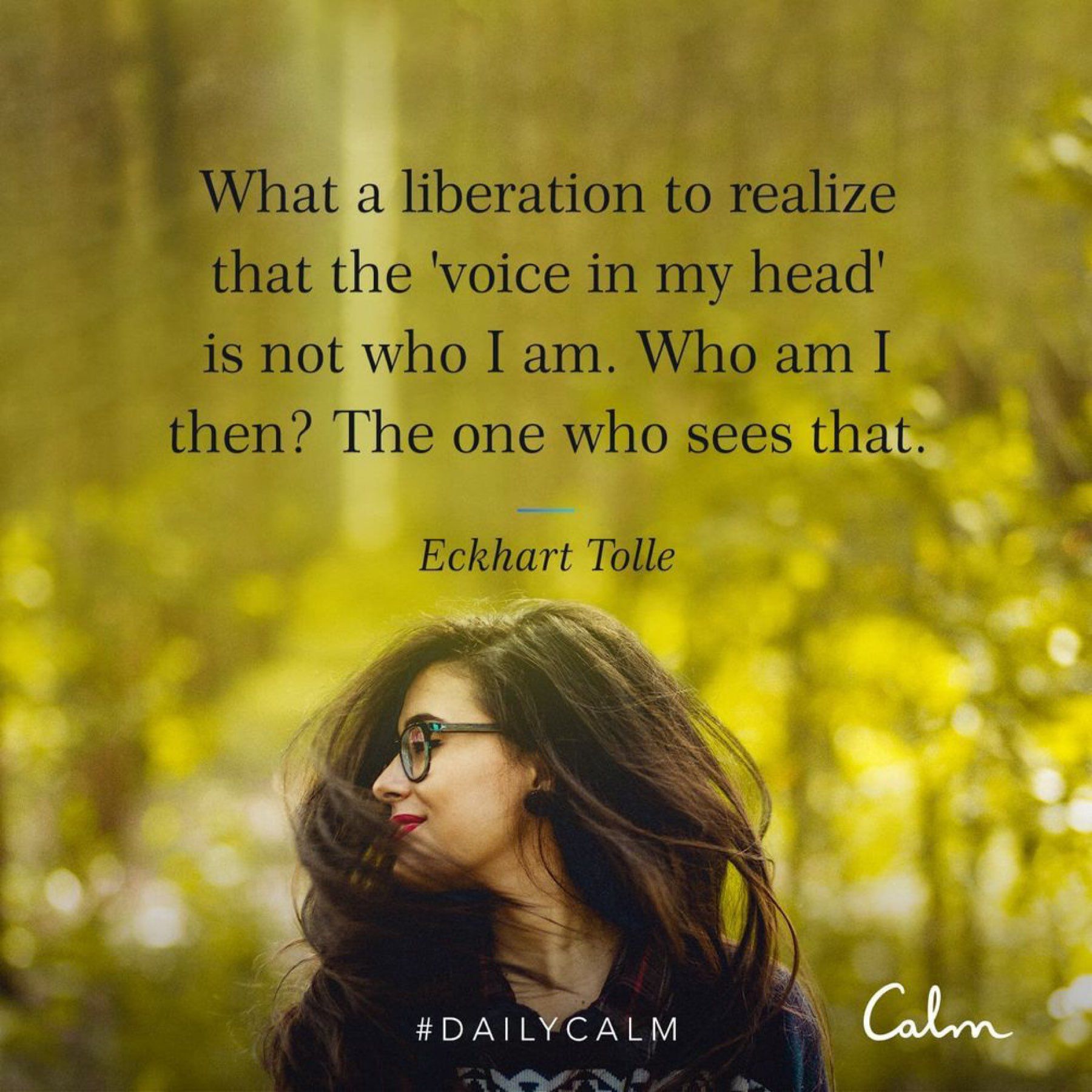
🎥 Alita: Battle Angel
👍 Intense and violent but surprisingly moving. I especially enjoyed her journey of self-discovery and growth.
It is important to acknowledge and validate your own suffering irrespective of its intensity relative to the suffering of someone else. You don’t have to suffer the most in order to have suffered.
It can be a real challenge to allow yourself to have a hard time. All too often, even in the midst of struggling, you say to yourself, “I know someone else has it worse.” While that may be true, it is not usually helpful or healthy.
I think that people who struggle with mental health issues are particularly prone to fall into this trap. I hear many people on my new favorite podcast, The Hilarious World of Depression, minimize their own struggles and say that others have a much harder time.
This is a cognitive distortion—a mental trap that has the effect of trivializing your experience. It actually doesn’t matter at all if someone else has suffered the same, or less, or more than you. If you are suffering, let yourself suffer. Acknowledge that it is hard. Validate your experience. Treat yourself with compassion.
This can be much easier to see when framed in the context of someone else, instead of yourself. Imagine this scenario. A friend comes to you and describes a situation that is causing her anxiety and stress. You listen carefully, and after she has broken down crying and shared everything with you, you respond, “I know someone who has it much worse than you. You ought to be grateful you don’t have it as bad as she.”
How would your friend feel in that moment? Instead of offering sympathy and compassion, you have made her feel insignificant and worthless. You have not validated her or the experience she is having.
When I think of this example, I have a visceral reaction. I cannot fathom doing that to someone else. And yet, I do it to myself all the time. All. The. Time.
My hope is that in thinking more about this, I can remember to treat myself with kindness and compassion. I urge you to do the same. We are all in such need of this.
🧘🏻♂️ What an inspiring thought. This is certainly aspirational, and maybe not possible everyday, but still worth striving for.
From my Daily Calm
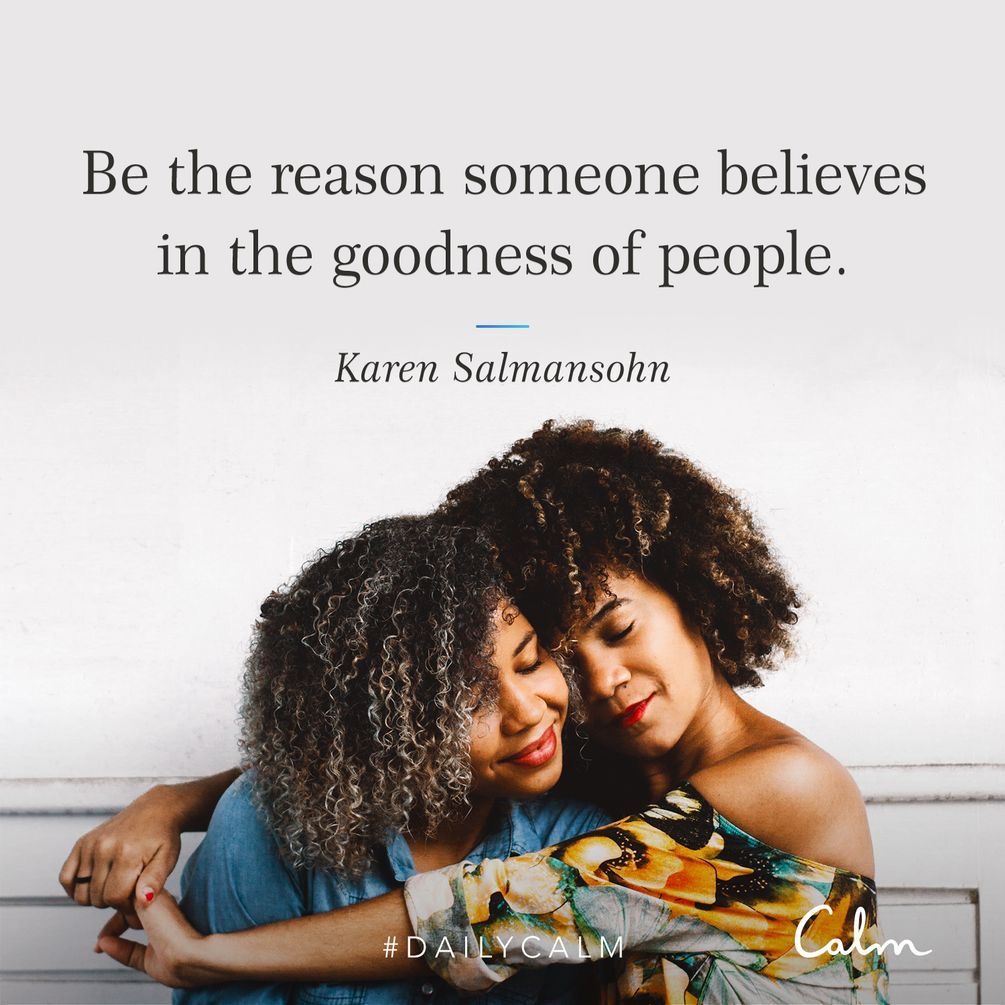
A discussion of the tools I have tried and the system I am using now to record, edit, and publish my podcast.
Links
🧘🏻♂️ This has been exactly the point of my healing retreat. I need to discover how to incorporate this practice more regularly into my life. From my Daily Calm
